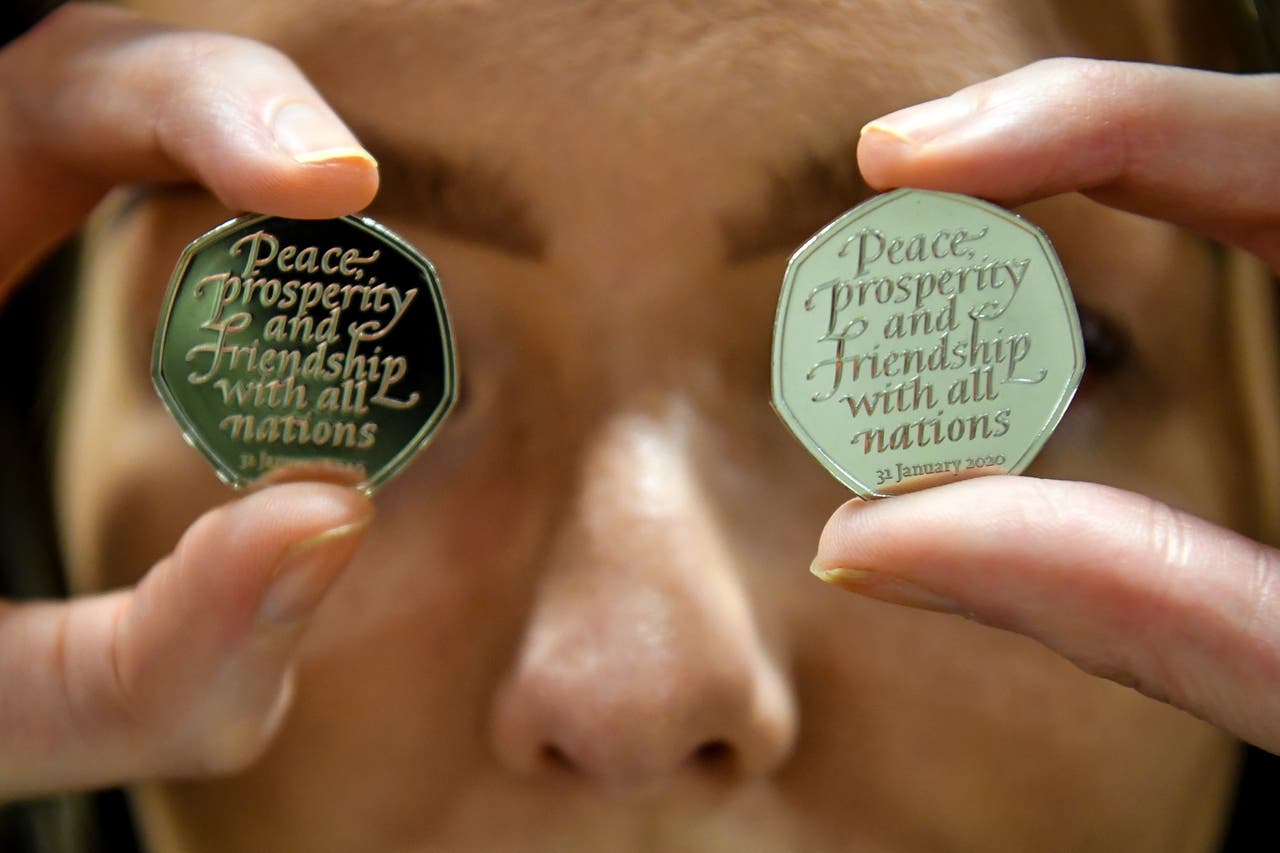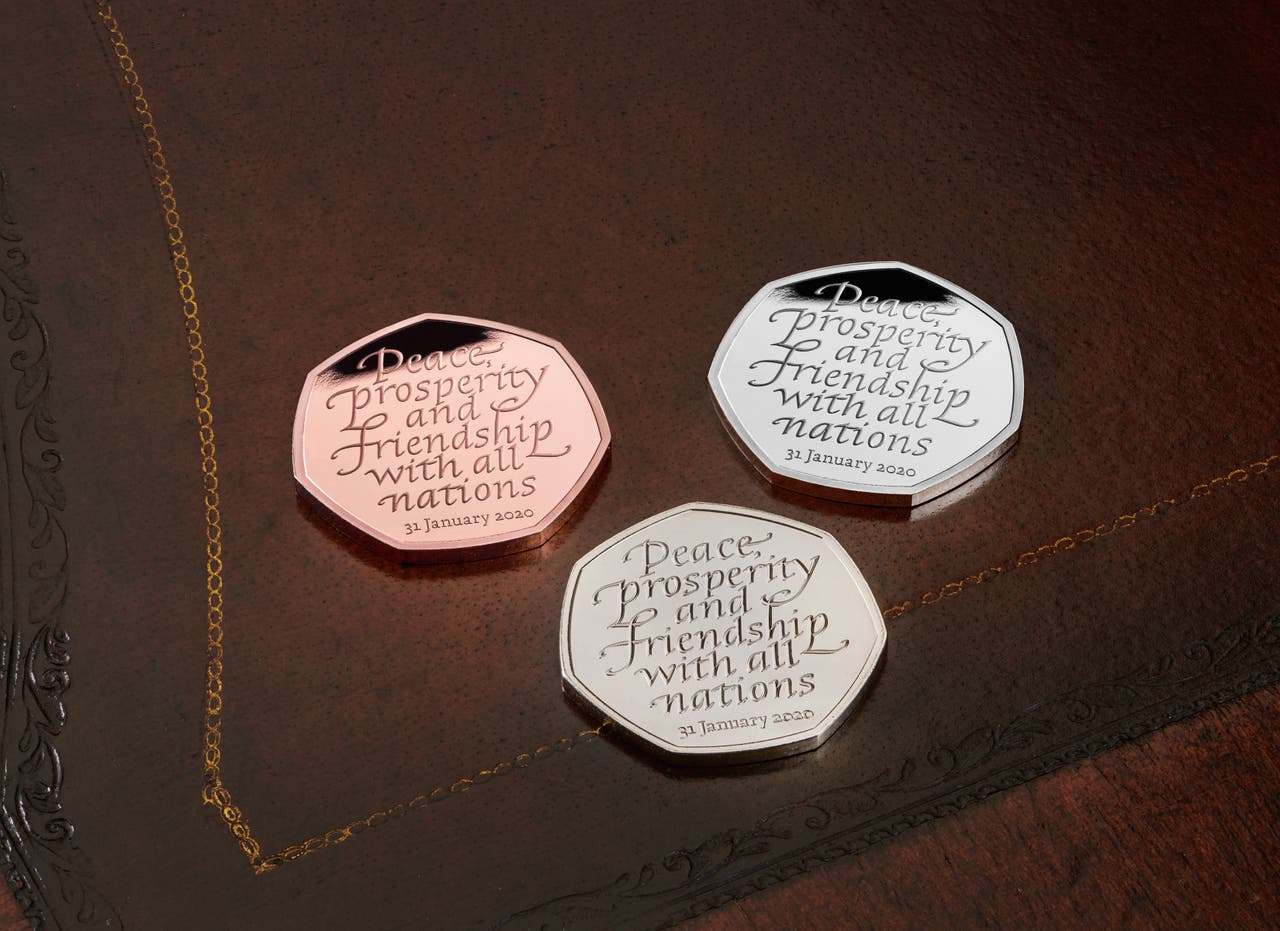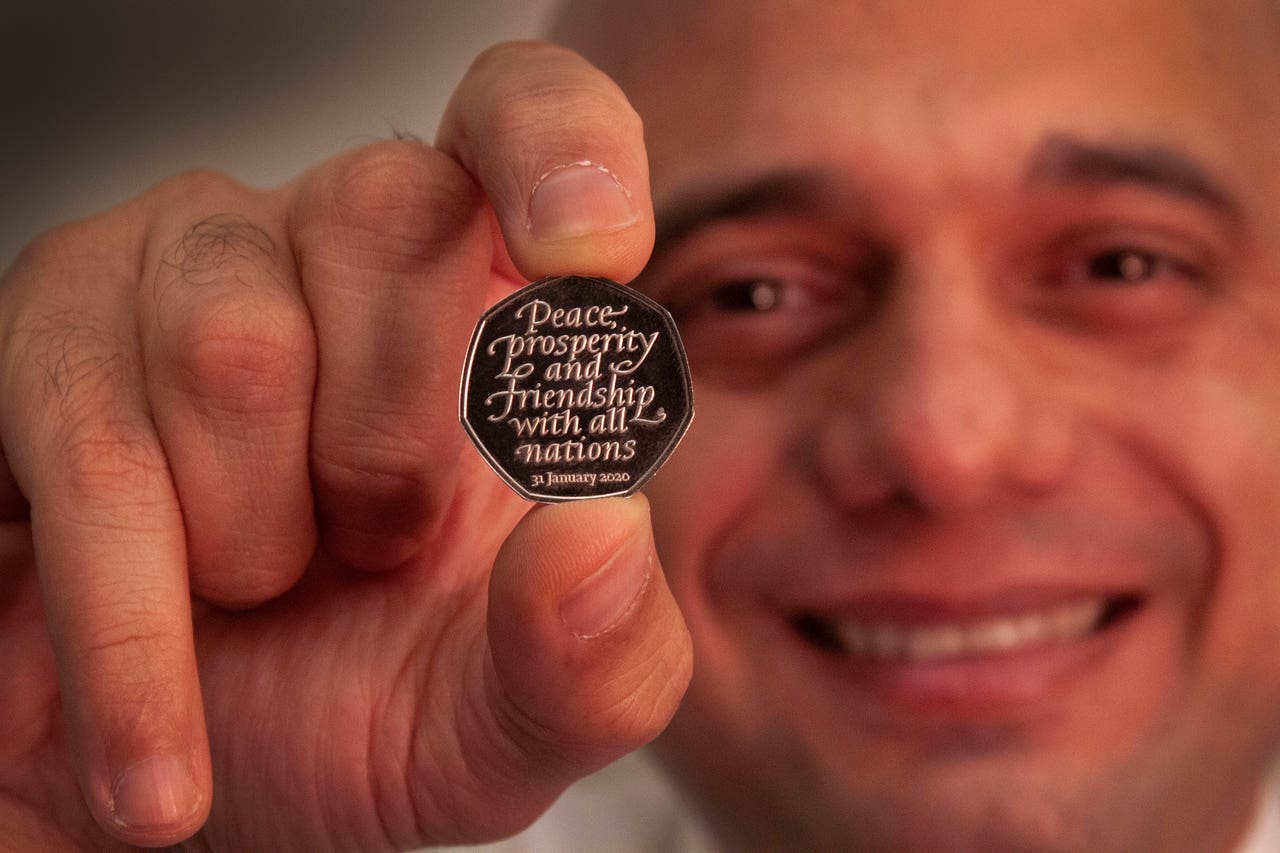Gold Brexit commemorative 50p coins priced at £945 are a sell-out
The Royal Mint has been operating a queuing system on its website as people buy the new commemorative 50p coins.
/arc-anglerfish-arc2-prod-shropshirestar-mna.s3.amazonaws.com/public/I5HY35ZYX5HO7OOSJJB5NOZDQ4.jpg)
Gold commemorative Brexit 50p coins priced at £945 have already sold out after being put on sale by the Royal Mint on Friday.
The coins, which were produced in a limited edition of 1,500, were no longer available to buy from the website by Friday morning.
A limited-edition two-coin set – with a historic 1973 50p marking the UK’s accession into the European Economic Community and a new 2020 50p marking the withdrawal from the European Union – has also sold out.
Priced at £30, 5,000 sets were produced.

The Mint was operating a queuing system to get on its website on Friday to filter demand for the coins.
It also limited silver versions of the coin, in a limited edition of 47,000 and priced at £60, to three per household.
Both the silver version and the £10 brilliant uncirculated version of the coin were awaiting stock by Friday morning, with shipping promised within 10 working days.
The brilliant uncirculated version of the coin is not a limited edition.
People do not have to pay for a Brexit coin as they will also appear in loose change.
Around three million Brexit 50p coins were entering banks, post offices and shops from Friday.
Another seven million of the coins, minted to mark the UK’s departure from the EU, will enter circulation later this year.
The Mint said it is the fourth time it has been involved in the production of a commemorative coin to mark the UK’s relationship with the European Union.
It produced a coin when the UK joined the European Economic Community in 1973, created a design for the single market in 1992, and marked the UK’s 25th anniversary of joining the EU in 1998.

The new coins are dated January 31 – and Chancellor Sajid Javid has said the coins mark the beginning of a “new chapter”.
Mr Javid originally ordered production of the celebratory coins in advance of the previous departure date of October 31.
But the Brexit delay meant about a million coins had to be melted down and the metal put aside until a new exit date was confirmed.

The coins have already sparked controversy before entering circulation – and not just for political reasons.
Their inscription reads: “Peace, prosperity and friendship with all nations.”
Author Sir Philip Pullman has called for the coins to be boycotted for not having an Oxford comma.
An Oxford comma is used after the penultimate item in a list of three or more items, so would be placed after the word “prosperity”.
His Dark Materials author Sir Philip wrote on Twitter that the omission meant the coin should “be boycotted by all literate people”.
Some other commentators have disagreed with Sir Philip, arguing the use of the comma is optional.
The punctuation mark takes its name from its use by the Oxford University Press (OUP).
On its use, the OUP’s style guide states: “In a list of three or more items, insert a comma before the ‘and’ or ‘or’.”
Fiona McPherson, senior editor with the new words team on the Oxford English Dictionary (OED), said: “The Oxford comma, also known as the serial comma, is used before the final conjunction in a list of items.
“It is often an optional piece of punctuation, but there are occasions where its inclusion can help to avoid ambiguity.”
As part of the launch of the coin, the Royal Mint Experience in South Wales was opening its doors for 24 hours on Friday to let people strike their own commemorative Brexit coins.
Tours for January 31 were a sell-out, but visitors will have the opportunity to strike commemorative coins until February 12.
Speaking about producing the new coins, Leighton John, operations director at the Royal Mint, told the PA news agency: “We’ve always commemorated major events, so it’s really great for us to be able to do this.
“And I think everyone will agree, whichever side of the argument you’re on, it’s a major event for the country.”